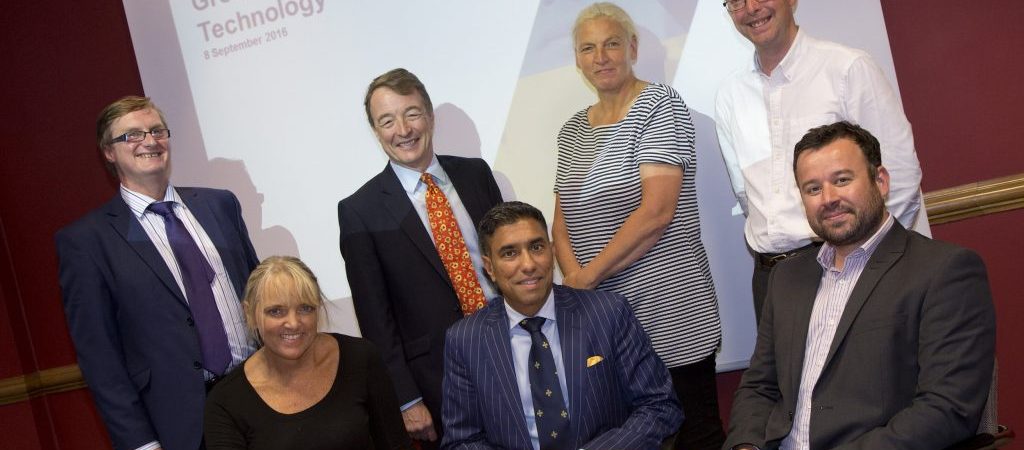New report highlights impact of digital exclusion on access to education and employment in the North East
A new report published by the North East Local Enterprise Partnership (North East LEP) has highlighted the impact digital exclusion in the North East LEP area is having on people’s ability to access education, skills and employment.
Commissioned by the North East LEP’s Skills Advisory Panel (SAP), ‘Digital Exclusion in the North East LEP Area’ looks specifically at the economic and skills-related impacts of digital exclusion in County Durham, Gateshead, Newcastle upon Tyne, North Tyneside, Northumberland, South Tyneside and Sunderland.
Published alongside IPPR North’s ‘Addressing digital exclusion in North East England’ research paper, the LEP’s digital exclusion report was carried out by New Skills Consulting.
Using data from the Office for National Statistics, it shows more than 200,000 people in the North East LEP area have either never used the internet, or have not used it in the last three months. It also reinforces existing findings that show people from disadvantaged backgrounds are most affected by digital exclusion.
Michelle Rainbow, Skills Director at the North East Local Enterprise Partnership, said: ‘Whilst we know digital exclusion is a problem in the North East, the coronavirus pandemic has really exacerbated the issue and highlighted why we must address it now.
“This report has allowed us to see the scale of the problem for the first time, and how COVID-19 has extended the gap that already existed in our region.
“If we truly want to level up the country and provide opportunities for all, we must address the issue of digital exclusion, and we must do it in partnership with businesses, education, the voluntary sector, and the public sector.”
‘Digital Exclusion in the North East LEP Area’ highlights that whilst the coronavirus pandemic has accelerated the pace of digital adoption, it has also widened the gap in areas like education and employment, particularly for those from disadvantaged backgrounds. A lack of in-person support during the pandemic has made it easier for people to withdraw, and limited access to digital devices has prevented people from accessing online training, job searches, and interviews.
Employers have also raised concerns about a lack of digital skills within the region’s workforce. A survey by the Department for Education in 2019 found 20% of North East employers found it difficult to recruit applicants with computer literacy or basic IT skills. 26% said they found it difficult to recruit people with advanced or specialist IT skills.
The report also looks at the effectiveness of existing initiatives to address digital exclusion, arguing that the current system is complex, with overlapping programmes and gaps in support. It also argues that much of the support available quickly becomes out of date and doesn’t meet the learning needs of people using the services.
Michelle continued: “If we look to countries like Finland, digital literacy is something that’s taught from kindergarten, it has the same level of importance as reading, writing and math’s.
“Whatever our agreed approach moving forward, we need to recognise that this issue isn’t just something that affects young people; it impacts people of all ages and at every stage in their lives. If people can’t access online tools to extend their learning, or can’t search and apply for employment opportunities online, how can they get into work or move up the career ladder from low-skill to high-skill jobs?”
The report puts forward a series of recommendations, recognising that the region’s response requires the support of academia; business; the voluntary, community and social enterprise (VCSE) sector; and the public sector.
Carol Botten, CEO of VONNE (Voluntary Organisations Network North East) and member of the North East LEP Skills Advisory Panel (SAP), said: “Some of the recommendations in our report can be delivered regionally, but others will need the support of Government and other stakeholders.
“We need to address the problem of access to digital devices, and how connectivity can be an additional barrier to people using digital services.
“We also need to prioritise education in digital skills from an early age, and ensure it becomes part of the curriculum in further and higher education.
“And by working with the business community, we can begin to develop a common framework for basic digital skills that meets the needs of employers.”
Michelle concluded: “Using the insights from this report and the IPPR North report, we plan to raise awareness of the scale of the challenge, agree a collective vision for the North East, and draw up the key areas we need to prioritise and address.
“This is a huge challenge for our region, and we won’t be able to tackle it all in one go. But we can start the process and make sure no one in the North East is left behind because they lack access to the digital skills, equipment and infrastructure so many of us take for granted.”
Read the Executive Summary of Digital Exclusion in the North East LEP Area by visiting the North East Evidence Hub.








